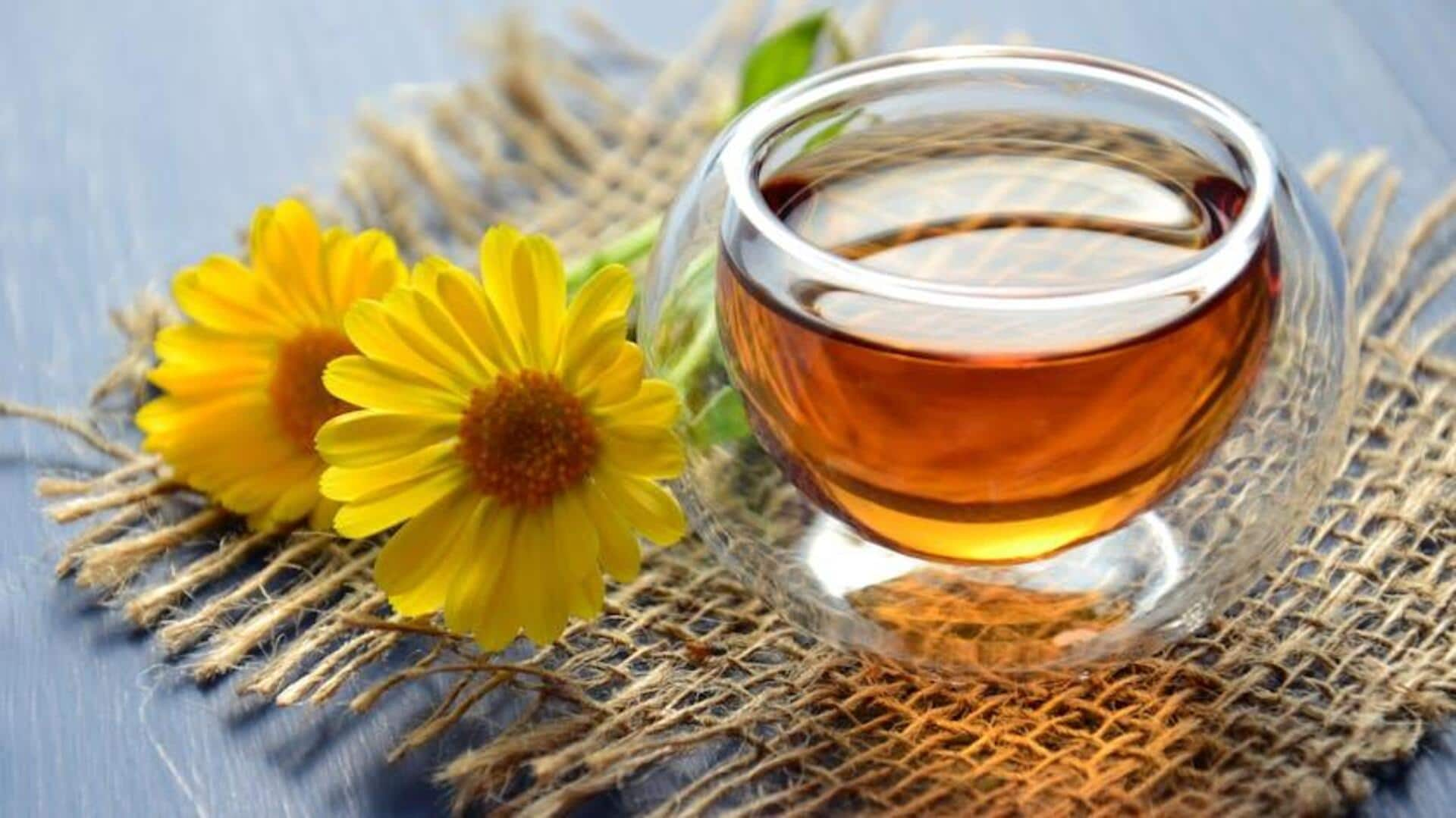
Herbal teas: Natural remedy or hype?
What's the story
Herbal teas have gained immense popularity for their associated health benefits, being marketed as natural remedies. Prepared from herbs, spices, and plant materials in hot water, they are sought after for their potential health benefits. In this article, we will take a closer look at whether these claims hold any truth and how do herbal teas affect your health.
Antioxidants
Antioxidant properties in herbal teas
Herbal teas are often touted for their antioxidant content, which can help deal with oxidative stress in the body. Ingredients such as chamomile and peppermint are known to be rich in antioxidants that may promote overall health. However, the concentration of antioxidants can vary greatly among the different types of herbal teas. It is important to note that while some herbal teas may provide antioxidant benefits, they shouldn't be relied upon solely for that.
Health benefits
Potential health benefits explored
Many herbal teas come with a specific list of health benefits owing to their unique ingredients. For example, ginger tea is commonly associated with digestive aid properties, while hibiscus tea may help maintain healthy blood pressure levels. However, the scientific evidence backing these claims may differ in strength and consistency. Always approach such claims critically and consider them as part of a broader lifestyle approach.
Caffeine-free
Caffeine-free alternatives
One of the most appealing aspects of herbal teas is that they are mostly caffeine-free. This makes them ideal for people sensitive to caffeine or looking to cut down on it. This way, people can enjoy a warm beverage without the stimulating effects of regular tea or coffee. However, not all herbal blends are completely free from caffeine. Check labels if this is a concern.
Safety concerns
Safety considerations when consuming herbal teas
While most herbal teas are considered safe when ingested in moderation, some can be risky due to certain ingredients or medication interactions. For instance, licorice root can alter blood pressure levels if consumed too much, over time. Pregnant women and those on medication should consult healthcare professionals before introducing new kinds of herbal tea into their routine to prevent any adverse effects.